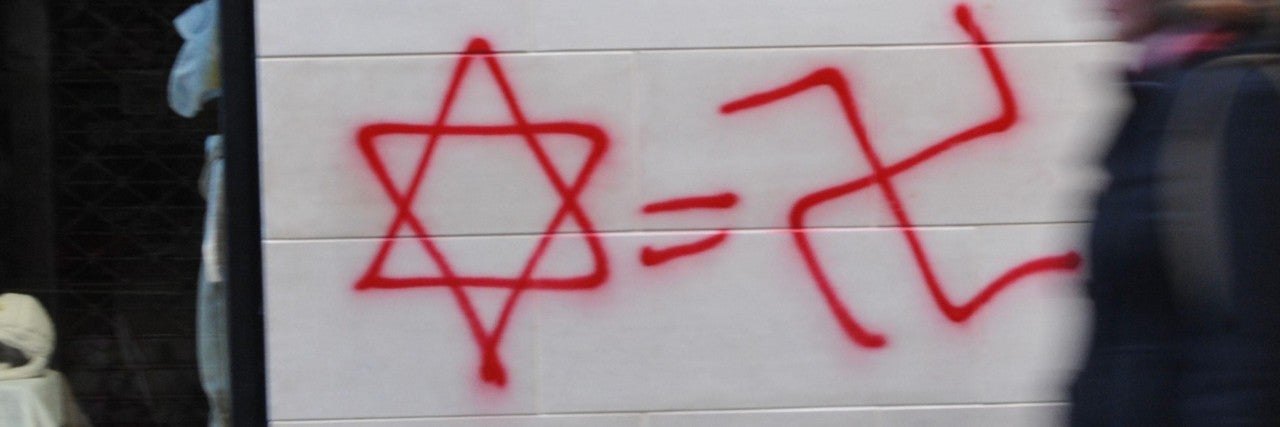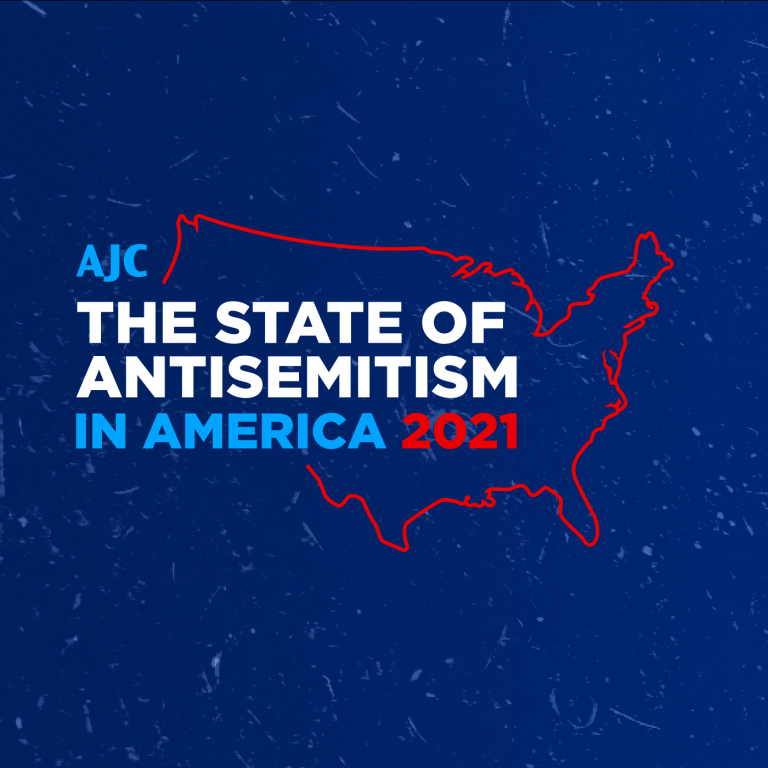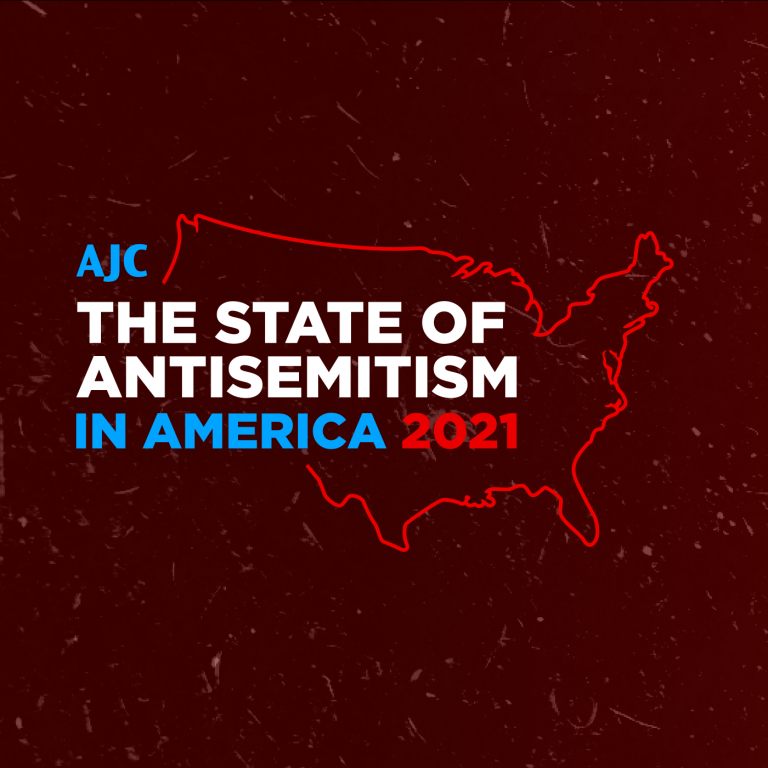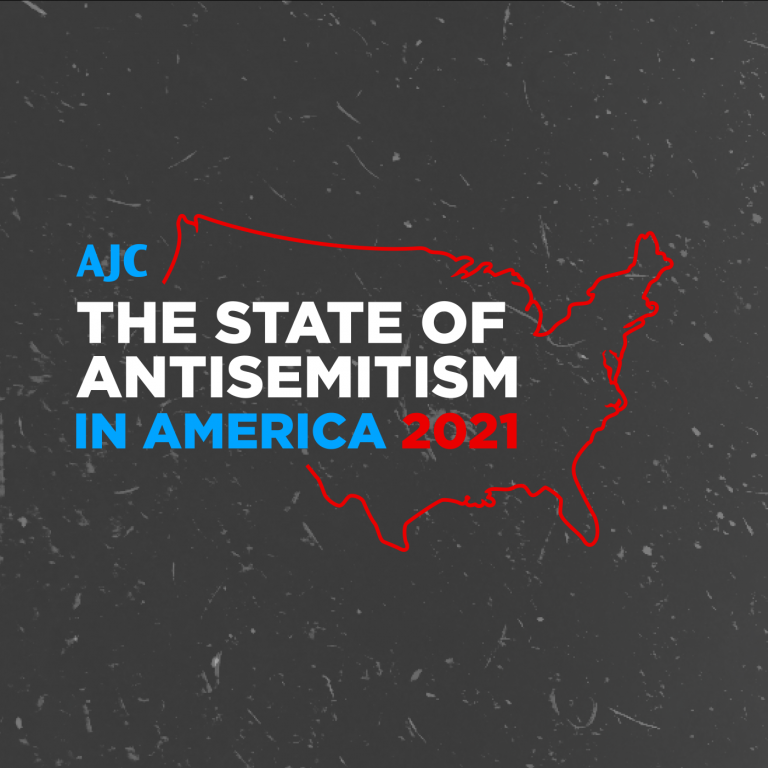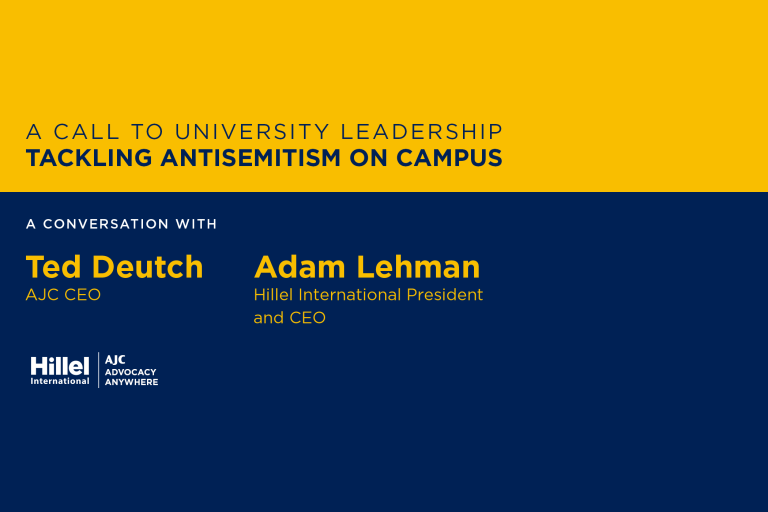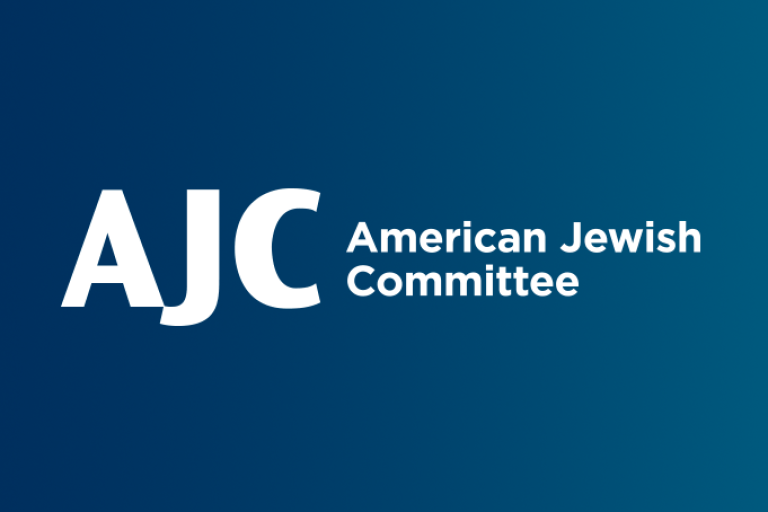October 26, 2021
Is antisemitism rising in America? How have American Jews been impacted by antisemitism? How does the general public view antisemitism? AJC’s State of Antisemitism in America Report 2021 answers these questions and more.
The American Jewish Committee (AJC) study, released on the eve of the third anniversary of the Tree of Life synagogue massacre in Pittsburgh, where 11 worshippers were killed, is based on parallel surveys of American Jews and the U.S. general public on their perceptions and experiences of antisemitism in the U.S.
The Jewish survey, the most comprehensive of its kind, is the third conducted by AJC on the subject. The poll of the general public on the subject was conducted by AJC for the second time and is also the largest of its kind.
Here are the top four takeaways.
-
American Jews are Deeply Concerned
Nine out of ten American Jews believe the cancer of antisemitism is spreading in the U.S. Eight out of ten believe Jew hatred has been on the rise in the last five years. And neither age, political affiliation, nor level of religiosity makes much of a difference in who feels that way.
The vast majority of Jews believe the extreme political right (91%), extreme political left (71%), and extremism in the name of Islam (86%) present an antisemitic threat in America.
The events of the past three years have given American Jews ample cause for concern. The Pittsburgh synagogue shooting was not an isolated incident. In the past few years, a shooter entered a Chabad synagogue in Poway, killing one and injuring others. At least a dozen Orthodox Jews have been violently attacked on New York City streets. Five people were murdered when a kosher market in New Jersey was attacked. Jews were beaten on the streets of major American cities during the Israel-Hamas conflict in May. Jewish institutions and Holocaust memorials have been marred by graffiti and shattered windows.
In fact, 31% of American Jews say they are less secure than a year ago and nearly one in four respondents said the Jewish institutions to which they belong had been targeted by antisemites.
-
There’s a Disconnect on Antisemitic Attacks in America
“Dirty Jew. Filthy Jew.” “Hamas is going to kill you.” “Go back to Israel.” “Death to Jews.’’ “Free Palestine.” These were just some of the chants by people who carried out violent antisemitic attacks on Jews during Israel-Hamas conflict in May of 2021.
At a time when American public discourse renewed its focus on hate, racism, and xenophobia, AJC’s survey shows that U.S. adults were far less likely than American Jews to have heard about the wave of violent antisemitism in May. Only 48% of the general public said they had heard “a lot” or “some” about Jews being attacked during that period, compared to 71% of American Jews who said the same.
Significantly, of the large majority of American Jews who heard about the attacks on Jews in May 2021, 72% said it made them feel less safe as Jews in the United States.
-
Fear of Antisemitism Impacts Jewish Life
Many of the antisemitic attacks in May of 2021 targeted Jews who could be identified as Jewish because of their clothing or something they were displaying. This has led a sizable portion of American Jews to question whether they should display their Judaism.
Twenty-two percent of the U.S. Jews said in the past 12 months they have avoided publicly wearing, carrying, or displaying things that might help people identify them as a Jew. One out of four Jews said they avoided posting content online that would broadcast them as Jewish.
What does it say about America that approximately four out of every ten American Jews (39%) have changed their behavior out of fear of antisemitism?
-
Jews and the General Public Agree: Anti-Zionism is a form of Antisemitism
There is widespread recognition among American Jews–and among the general public–that hostility toward Israel and hatred of Jews are closely intertwined. Anti-Zionism—that is, the belief that Israel has no right to exist—is viewed by more than 80% of American Jews and the general public as antisemitic. This includes 92% of Republicans and 83% of Democrats.
The overt antisemitism of the anti-Zionist movement has emerged most recently in the U.S. in the form of battles over intersectionality and clashes of identities. In several cases, social justice activists representing a variety of causes have tried to exclude Jews who support the Jewish state, as most do.
Last week, the D.C. chapter of Sunrise, a group concerned about climate change, boycotted a voting rights rally, citing the participation of only Jewish groups that support Israel, but no others.
.@SunriseMvmtDC, this is not an apology—and you're not listening to what Jews have to say.
— American Jewish Committee (@AJCGlobal) October 26, 2021
AJC's new #AntisemitismReport found that over 80% of Americans, both Jews and non-Jews, view anti-Zionism as antisemitic.
We agree.
Withdraw your ugly statement. https://t.co/hZVJhbj7Z3
In 2019, the D.C. Dyke March, a demonstration of lesbian visibility, banned flags emblazoned with the Star of David. This year, Chicago Dyke March organizers promoted it with a picture of the American and Israeli flags ablaze. The boycott, flag ban, and cartoon were intended as direct statements to Jews that they don’t have a right to a national identity.
